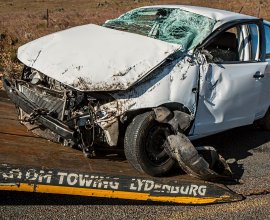The boss may check where the company car is now, check if there is as much fuel in the tank as it appears from the invoice, as well as check if we are driving legally, e.g. we are not exceeding the allowed speed and this is legal using GPS systems. What is the limit of such a check and how much can an employer really know about travelling in a company car of his employee?
Modern telematics and GPS systems allow the acquisition of a variety of data, not only on the vehicle. Even if this is not the primary purpose of the employer, he receives information about the employee and his activities. On the basis of the exact location of the car, it is possible to determine where the driver is located and whether he is actually performing his duties. Modern tools allow to check the information not only in the present time but also in the past. Additionally, after equipping the vehicle with telematic systems, the employer can monitor whether the amount of refuelled fuel does not differ from the data on invoices provided by the employee. Another issue to be monitored is compliance with traffic regulations. On the basis of data generated by the telematics system or GPS, it is possible, for example, to verify the speed at which a given vehicle moves and whether it complies with the applicable regulations.
However, there are two conditions laid down by law, the fulfilment of which allows the data obtained through monitoring systems to be used legally for these purposes. for the purposes mentioned above.
- First of all, every employee who uses a vehicle equipped with such a system must be informed about it before he or she starts driving. The second, very important issue is to ensure the security of the acquired data - says Kamil Korbuszewski, GBOX expert.

The increase in the number of vehicles equipped with telematics systems significantly increases road safety, also allows to improve efficiency and achieve significant savings by transport companies or companies with vehicle fleets. However, the presence of telematic tools raises questions about the protection of the right to privacy of professional drivers and employees using company vehicles. As it results from the provisions of Art. 22. §1. of the Labour Code, at the moment of establishing an employment relationship, an employee undertakes to perform a specific type of work for the employer and under his direction, at a place and time determined by him. The employer is obliged to employ the employee for remuneration. Within the framework of the above regulations, the superior may check whether the activities entrusted to the employed person are actually performed in accordance with the specified scope. The employer, if certain prerequisites for the legitimacy of such activities are met, has the possibility to legally apply monitoring to the employees. The control in this respect is justified when the employer applies the principle of proportionality - i.e. in situations where the means of supervision used are adjusted to the employer's interest and the monitoring is used in connection with a specific need or in order to increase effectiveness. Another rationale justifying the legitimacy of checking workers is the absence of other effective ways of controlling the work of the persons employed.
- With regard to the transport industry, this is all the more important as the safety of the goods transported may be the most important need for companies. Therefore, the use of telematic or GPS systems to check the vehicle and thus the location of the driver is fully legal. Very often such tools are also an element of a larger process, used to manage and optimize the functioning of the entire car fleet - comments Kamil Korbuszewski.
As the expert points out, according to the Personal Data Protection Act, the employer must ensure full data protection, as well as protect it against unauthorized access. If these conditions are not met, the employer must be aware that the use of the acquired information is forbidden, and allowing such control may result in criminal liability.
Source: newsrm.tv








